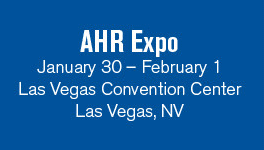Tuesday, January 31, 2017: 9:45 AM-11:00 AM
Fundamentals and Applications
Chair:
J. Steven Brown, Ph.D., P.E., The Catholic University of America
Sponsor: Journal Policy Committee with Co-sponsors TC 1.3, TC 3.1, and TC 8.4
The seminar addresses low-GWP alternative refrigerants and their applications. As regulations and legislation become increasingly more widespread and restrictive, the HVAC&R industry will need to identify viable alternatives for existing refrigerant solutions. This environmentally-driven change is different than past ones since additional constraints are being placed on refrigerants in essence reducing the number of viable single-component solutions. The seminar highlights five papers appearing in ASHRAE’s Science and Technology for the Built Environment November 2016 edition (one dedicated specifically to low-GWP refrigerants.) The presentations focus on low-GWP halocarbon refrigerants containing unsaturated carbon bonds during boiling heat transfer and in system applications.
1 Oil Retention of Lower GWP Refrigerants and Lubricant Mixtures and Its Effect on Heat Transfer and Pressure Drop in Microchannel Type Air Conditioning Evaporators
This talk focuses on the lubricant retention characteristics of lower global warming potential (LGWP) refrigerants R32, R1234yf, and R454B. The speaker highlights similarities and differences of the oil retention characteristics between refrigerant R410A and the LGWP refrigerants in two types of microchannel evaporators used in air conditioning systems for residential applications. The oil in circulation with the refrigerants penalized the evaporators’ heat transfer capacity and increased the refrigerant-side pressure drop. For the LGWP refrigerants, the penalization of the heat transfer capacity was lesser than that observed for the refrigerant R410A at similar operating conditions.
2 Miscibility of POE and PVE Oils with Low-GWP Refrigerant R-1234ze(E)
The miscibility of POE68 and PVE68 oils with R-1234ze(E) has been investigated for the temperature and oil mass fraction ranging of –35~80 °C and 0~70 wt%, respectively. Mixture saturation vapor pressures are also measured and are shown to decrease with increase in mass fraction of the oil. The miscibility-test results indicate that the POE68 and PVE68 oils are completely miscible at mass fractions of the oil below 20% and 10%, respectively, for the entire temperature. Refrigerant-oil phase separations are observed for certain mass fraction of the oil and temperature ranges, indicating that the refrigerant-oils are not miscible.





